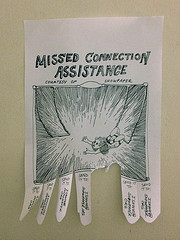Driving Traffic to Your Forums with Facebook, Instagram, Twitter and YouTube

Credit: Jason Eppink (CC BY 2.0)
In the past, I’ve seen forum owners and managers suggest that it was harder to grow their forums or their hosted community because of people spreading their time out across different forms of social media. I think that’s probably true, but I don’t see it as a bad thing.
What we’re seeing is platform diversification. Forums are fine. We just have more options, and we use the options that best fit a particular need.
But if you run a forum or a hosted community, you have to accept a simple reality: people will spend time on Facebook, Instagram, YouTube, Twitter and other platforms. Once you accept that reality, you can begin to utilize these platforms to offer community members more value and to engage with them – and others – with the idea of driving traffic back to your community.
Read More


 When viewing products on Amazon.com, you may notice a section on the product page labeled “Customer Questions & Answers.” For example, on the page for the
When viewing products on Amazon.com, you may notice a section on the product page labeled “Customer Questions & Answers.” For example, on the page for the 
 You will soon be able to own a yourname.community domain name, thanks to ICANN’s
You will soon be able to own a yourname.community domain name, thanks to ICANN’s 



